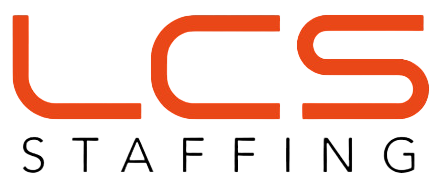Navigating your career effectively involves aligning your skills with the demands of the job market. As industries evolve and new technologies emerge, ensuring that your skills remain relevant and in demand is crucial for career growth and satisfaction. Here’s a guide to help you align your skills with market demands and build a successful career pathway.
Conduct a Market Analysis
Start by researching current trends and future projections in your industry. Identify emerging fields, key technologies, and evolving job roles. Utilize job boards, industry reports, and professional associations to gather insights. Understanding market demands will help you pinpoint which skills are becoming increasingly valuable and where opportunities are growing.
Assess Your Current Skills
Evaluate your existing skills and experiences. Create a comprehensive list of your technical skills, soft skills, and achievements. Compare this list with the skills and qualifications required for roles that interest you. This assessment will help you identify any gaps between your current skill set and the skills needed to meet market demands.
Identify Skills Gaps and Learning Opportunities
Once you’ve assessed your skills, identify areas where you need improvement or additional expertise. Look for learning opportunities such as online courses, certifications, workshops, or advanced degrees. Focus on acquiring skills that are in high demand and relevant to your desired career path. Platforms like Coursera, Udemy, and LinkedIn Learning offer a wide range of courses that can help bridge skills gaps.
Leverage Transferable Skills
Many skills are transferable across different roles and industries. For example, project management, communication, and problem-solving skills are valuable in various contexts. Highlight these transferable skills in your resume and cover letter, and demonstrate how they apply to the roles you’re targeting. This approach can broaden your career options and make you a more versatile candidate.
Gain Practical Experience
Practical experience is essential for demonstrating your skills and knowledge. Seek internships, volunteer opportunities, or freelance projects related to your field. These experiences can provide hands-on learning and enhance your resume. Additionally, consider working on personal projects or contributing to open-source initiatives to showcase your abilities.
Build a Professional Network
Networking is a powerful tool for career advancement. Connect with industry professionals, attend conferences, and join relevant groups or associations. Engaging with your network can provide valuable insights into industry trends, job opportunities, and skills in demand. Networking can also lead to mentorship opportunities and professional growth.
Stay Adaptable and Flexible
The job market is constantly evolving, and the ability to adapt is crucial. Stay open to learning new skills and exploring different career paths. Flexibility can help you pivot to new opportunities and remain competitive in a changing job market. Embrace a growth mindset and be willing to adjust your career plans as needed.
Create a Career Development Plan
Develop a clear career development plan outlining your short-term and long-term goals. Include specific milestones, such as acquiring new skills, gaining experience, or achieving certifications. Regularly review and update your plan to reflect changes in the job market and your personal career aspirations.
Seek Feedback and Mentorship
Feedback from mentors, colleagues, or career coaches can provide valuable insights into your strengths and areas for improvement. Seek constructive feedback on your skills and performance, and use it to make informed decisions about your career development. Mentorship can also offer guidance, support, and valuable industry connections.
Showcase Your Skills Effectively
When applying for jobs, ensure your resume and LinkedIn profile highlight your skills and accomplishments relevant to the roles you’re targeting. Use concrete examples and quantifiable results to demonstrate your expertise. Tailor your applications to emphasize how your skills align with market demands and the specific requirements of each role.
Aligning your skills with market demands requires a proactive approach to career development. By conducting market research, assessing your skills, and pursuing continuous learning, you can position yourself for success in a dynamic job market. Embrace adaptability, seek practical experience, and build a strong professional network to create a fulfilling and forward-thinking career pathway.
Share this on…
Connect with Us
Trust LCS Staffing to be your best choice for all your staffing needs. With our expertise and dedication, we are committed to providing the highest quality service.
